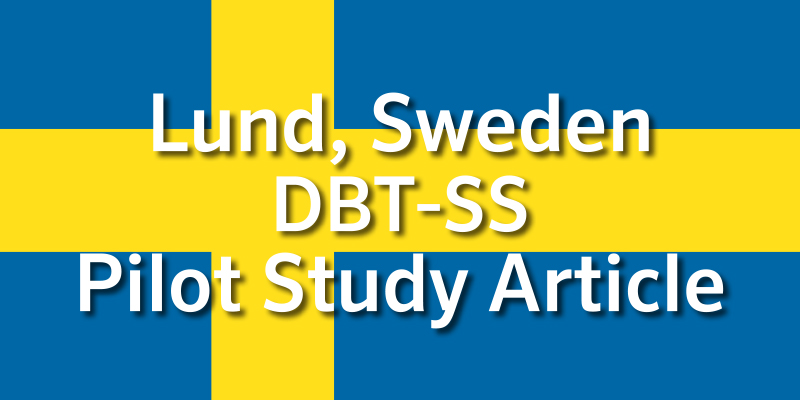Alexandra Rosendahl-Santillo, Reid Lantto, Lena Nylander, Christina Thylander, Pernilla Schultz, Julie Brown, Marta Wallinius and Sofie Westling
Background: Dialectical behavior therapy (DBT) is an evidence-based treatment for self-harm and emotion regulation difficulties. A modified version, DBT-Skills System (DBT-SS), has been developed in the USA for individuals with cognitive difficulties. The present study is a pilot study, testing the DBT-SS in a Swedish context.
Methods: Six participants were treated with individual therapy and group skills training for 48 sessions each. A case series design was used to follow individual development over time. The primary outcome measure was reduction in challenging behaviors. Secondary outcomes were level of functioning in daily life, hospital admissions, and resilience and vulnerabilities in different risk domains. Data was analyzed using time-series diagrams. Effect sizes of changes were calculated using Cohen’s d.
Results: Challenging behaviors decreased over time and participants’ global level of functioning increased. There was a reduction in number of hospital admissions over time. As for resilience and vulnerabilities, participants’ overall level of risk in various areas remained unchanged or decreased after treatment.
Conclusions: The results indicate that DBT-SS might be a promising treatment for cognitively challenged individuals with emotion regulation difficulties and challenging behaviors in a Swedish context. The study provides suggestions for a future randomized controlled trial.

